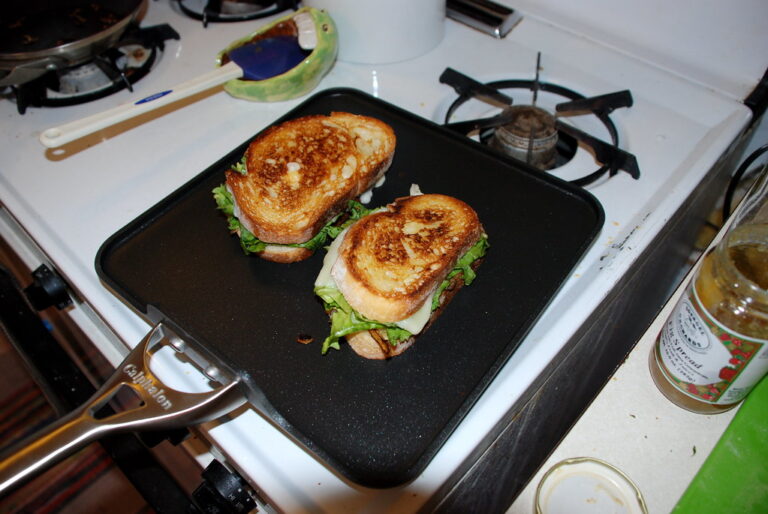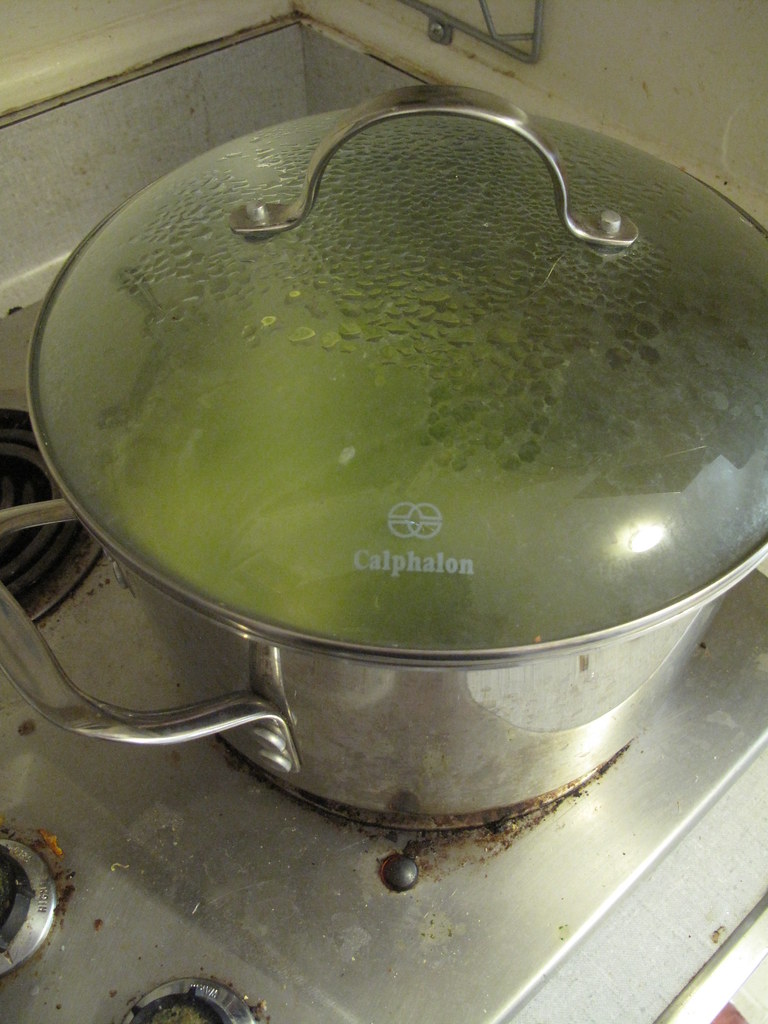Are you wondering if cast iron pans are safe to use in your kitchen? Well, the answer is a resounding yes! In this article, we’ll explore the benefits of cooking with cast iron pans and address any concerns you may have about their potential risks.
We’ll also provide tips on how to season and maintain your pan for optimal performance. So, let’s debunk those common myths and learn how to cook and clean with cast iron pans safely!
Key Takeaways
- Cast iron pans distribute heat evenly across the entire surface.
- Cast iron pans retain heat well, even when ingredients are added.
- Improper seasoning and maintenance can lead to food sticking and difficulty in cleaning.
- Seasoning a cast iron pan is a simple process that creates a naturally non-stick surface.
The Benefits of Cooking With Cast Iron Pans
One of the benefits of cooking with cast iron pans is that they distribute heat evenly. When you cook with a cast iron pan, the heat spreads across the entire surface, ensuring that your food cooks uniformly. This is especially important when searing meats or frying foods because it helps to create a crispy exterior while keeping the inside juicy and tender.
Another advantage is that cast iron pans retain heat well, meaning they stay hot even when ingredients are added. This allows for better control over cooking temperatures and prevents sudden drops in temperature, resulting in more consistent cooking results.
Additionally, cast iron pans can be used on various heat sources such as stovetops, ovens, or grills, making them versatile and convenient for different cooking methods.
Understanding the Potential Risks of Cast Iron Pans
To understand the potential risks, you should be aware of how seasoning can affect the cooking surface of your cast iron cookware. Seasoning is a process that involves coating the pan with oil and heating it to form a protective layer.
While it helps prevent rust and provides a non-stick surface, improper seasoning can lead to problems. If you use too much oil or don’t heat it properly, the seasoning may become sticky or uneven. This can cause food to stick and make cleaning difficult.
Additionally, if you use acidic ingredients like tomatoes or vinegar in your cast iron pans without proper seasoning, they may react with the metal and affect both the taste of your food and the integrity of the pan.
How to Season and Maintain Your Cast Iron Pan
When seasoning and maintaining your cast iron pan, it’s essential to regularly clean it with a mild detergent and warm water. This helps remove any food residue and keep your pan in top condition.
Here are some important tips to help you season and maintain your cast iron pan:
- Seasoning: Apply a thin layer of vegetable oil or shortening to the entire surface of the pan, including the handle. Bake it in a preheated oven at 375°F for about an hour. Repeat this process several times to build up a non-stick coating.
- Avoid soap: While cleaning with mild detergent is necessary, avoid using soap on your cast iron as it can strip away the seasoning.
- Dry thoroughly: After cleaning, make sure to dry your cast iron pan thoroughly to prevent rusting. Place it on low heat for a few minutes or towel dry immediately.
Debunking Common Myths About Cast Iron Pans
If you’ve been told that seasoning a cast iron pan is difficult, I’m here to tell you that it’s actually quite simple. Contrary to popular belief, cast iron pans are not high-maintenance and can be easily seasoned and maintained for safe cooking. Let’s debunk some common myths about cast iron pans:
| Myth | Fact |
|---|---|
| Cast iron pans are hard to clean | Cast iron pans can be cleaned with mild soap and water, just like any other cookware |
| Food sticks to cast iron pans | Properly seasoned cast iron pans have a naturally non-stick surface |
| Cast iron pans leach harmful chemicals into food | When properly seasoned, cast iron pans are safe to use and do not release harmful chemicals |
Tips for Safe Cooking and Cleaning With Cast Iron Pans
Cooking and cleaning with cast iron can be easy and safe if you follow these helpful tips.
- Season your pan properly: This creates a natural non-stick surface, preventing food from sticking and making clean-up easier.
- Apply a thin layer of oil to the entire surface of the pan.
- Heat the pan on medium-high heat until it starts smoking slightly.
- Let it cool, then wipe off any excess oil.
- Use silicone or wooden utensils: Metal utensils can scratch the seasoning of your cast iron, so opt for gentler alternatives.
- Avoid using harsh detergents: Stick to mild dish soap or simply use hot water and a stiff brush to clean your pan. Harsh chemicals can strip away the seasoning.
Conclusion
In conclusion, using cast iron pans can be a safe and beneficial choice for your cooking needs.
By understanding the potential risks and properly maintaining your pan through seasoning, you can enjoy its many advantages.
Remember to debunk common myths about cast iron pans and follow safety guidelines for cooking and cleaning.
With these tips in mind, you can confidently cook with your cast iron pan while enjoying the delicious meals it helps create.


